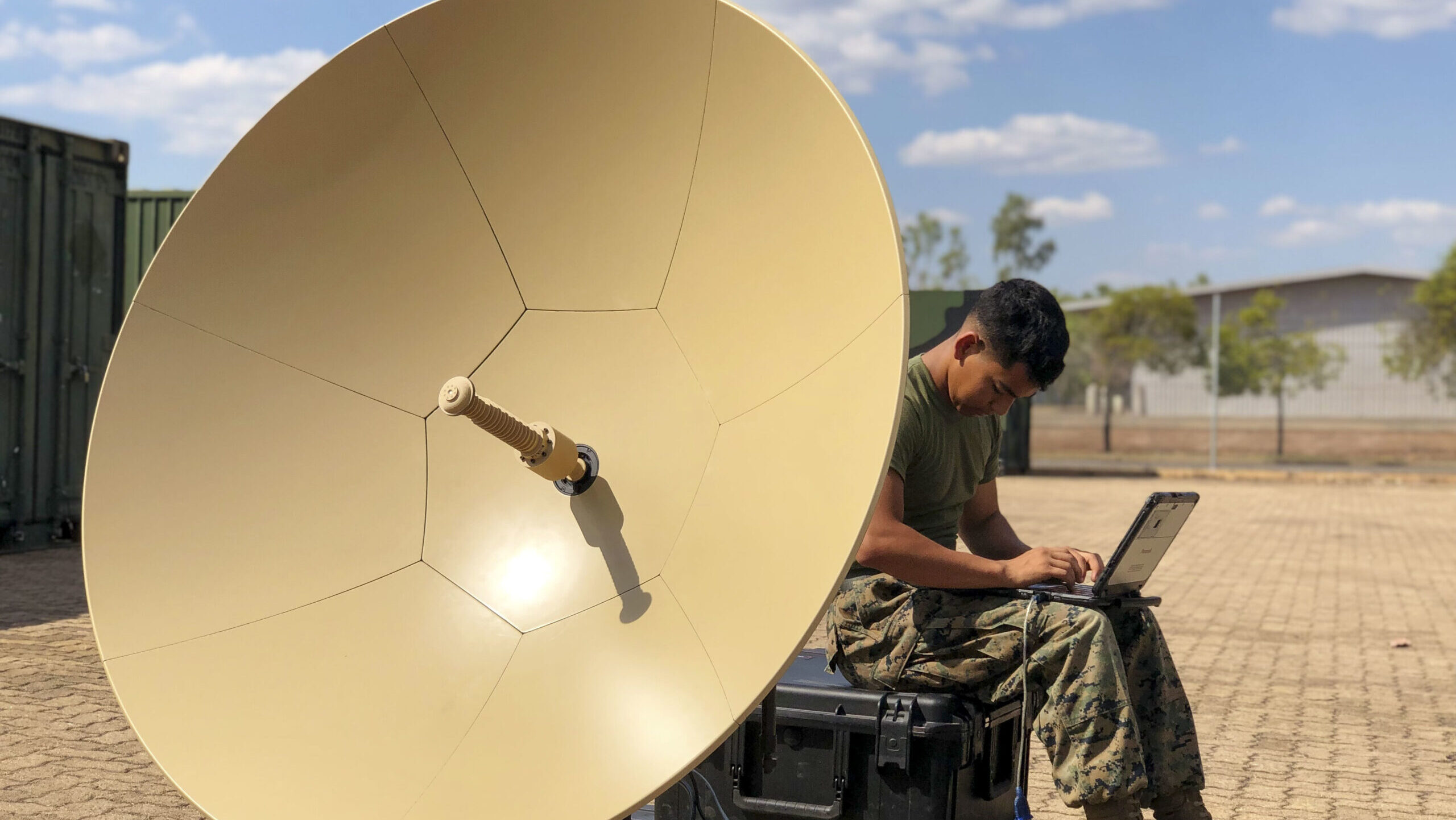SYDNEY J. FREEDBERG JR.

The Marine Corps’ deputy commandant for information is bullish on the future of the force and its capability to communicate in a fight with high-tech foes.
The big difference between today and just a few years ago, Lt. Gen. Mathew Glavy said, is the exponential uptick in the number of relatively inexpensive satellites in low Earth orbit, providing a dense network of communications nodes that can work around enemy jamming, hacking, or anti-satellite strikes.
“Space, space can be the most resilient capability today,” Glavy enthused to the annual Association of Old Crows conference. (“Crow” is an old nickname for electronic warfare specialists, probably because their jamming transmissions “squawk” raucously to drown out enemy signals.)
“People will tell you that every system that I own [will face] a degraded, denied, intermittent, latent environment, [that] I’m not going to have the electromagnetic spectrum,” Glavy said. “[They say,] ‘You’re not going to have it, they’re gonna shut you down.’
“That may have been accurate in 2018 to 2019,” he conceded. But today? “I’ll you right now, no freaking way. No. Freaking. Way.”
The reason is the proliferation of LEO satellites, he said, showing a slide of the literally skyrocketing number of launches, from under 200 a year as recently as 2016 to over a thousand in 2020. “It’s off and running,” Glavy said. “It’s probably the most resilient environment.”
That kind of connectivity is useful to all sorts of armed forces. Most notably, the Ukrainian military has relied on Elon Musk’s Starlink satellites since Russian hackers hamstrung ViaSat in February 2022, and Starlink has proven remarkedly resilient to cyber and electronic warfare, while the sheer number of satellites and the speed with which they can be replaced has deterred anti-satellite missile strikes.
‘Really, Really Different’ Marine Regiments
But LEO comsats might be even more essential to the Marine Corps’ new flagship formation, the Marine Littoral Regiment, a streamlined unit whose whole raison d’être is to deploy rapidly to strategically placed islands, far forward and exposed to the full force of hostile jamming. The first Littoral Regiment created (confusingly designated the 3rd MLR for historical reasons) is based in Hawaii and, Glavy said, recently “completed all the certification exercises” to be considered combat ready. A second MLR is being stood up in Okinawa.
Built around an infantry battalion and an anti-aircraft battery, with new highly mobile anti-ship missile launchers in testing, the Littoral Regiment is intended to seize, secure, and defend vital island bases in a future Pacific conflict with China. Lacking the firepower, manpower, and electronic warfare assets of a traditional Marine Expeditionary Unit, the smaller MLR depends more on support from the joint force — and in turn is supposed to act as that force’s eyes and ears, providing intelligence and targeting information.
The Littoral Regiments are “really, really different,” Glavy told the Old Crows conference. “They are information-centric.”
In World War II, “our predecessors and grandfathers” moved from island to island to liberate key terrain from Imperial Japan, Glavy said, showing a slide centered on the Philippines. Now that long “First Island Chain” from Japan to Indochina is in the hands of US allies, and it’s up to the current generation of servicemembers to keep it that way. That’s the historical and geostrategic content for the Littoral Regiments.
“How does one maximize this terrain, to sense, to make sense, to execute the reconnaissance in ways that the joint force commander needs?” Glavy asked. “The Marine Littoral Regiments … they’re going to provide, ultimately, the advantage the Marine Corps and the joint force seek, making sure we’re use this terrain, this good ground, correctly.”
But there’s nothing more exposed and easily isolated than a forward scouting force, and scouts who can’t report back are useless even if they survive. That’s why the low Earth orbit connection is so crucial the Marine Corps’ future war plans.
“We don’t win the space competition, don’t bother,” Glavy said. “No space, no chance.”
No comments:
Post a Comment